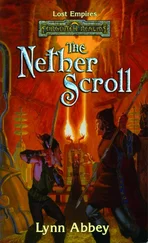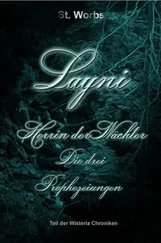They camped on the edge of the plain, not knowing that most of their party would die there before they were three years older, and rode across it the following morning, urging their horses to gallop over the grassy slopes, surprising pheasants and hares that made the young horses startle and leap like hares themselves. It seemed the thunder-storms had brought an end to the spring rains; the sky was the deep blue of early summer, and it was very hot; both men and horses poured with sweat; the colts were excited and hard to control.
“It turned out a good exercise for them after all,” Kiyoshige said when they stopped to rest in the middle of the day in the shade of one of the few scattered woods on the grassy plain. There was a cold spring nearby where the steaming horses were watered and the men washed hands, faces, and feet before they ate. “If we were to fight an enemy on terrain like this, half our horses would be out of control!”
“We get too little practice,” Irie said. “Our troops have forgotten what war is like.”
“This would make a perfect battleground,” Shigeru said. “Plenty of room to move and a good terrain. We from the West would have the sun behind us at the end of the day, and the slope in our favor.”
“Bear it in mind,” Irie said briefly.
They did not speak much, but dozed beneath the sonorous pine trees, half-stupefied by the heat and the ride from the grasslands. Shigeru was almost asleep when one of the men posted as a guard called out to him, “Lord Otori! Someone is coming from the east.”
He got to his feet, yawning and drowsy, and joined the guard on the edge of the wood, where a pile of large boulders gave them cover.
In the distance, a lone figure was stumbling across the plain. It fell repeatedly, struggled to its feet, sometimes crawled on hands and knees. As it came closer, they could hear its voice, a thin anguished howling that now and then quietened to sobbing only to rise again in a note that made horror touch the spines of the watching men.
“Keep out of sight,” Shigeru called, and swiftly the thirty men hid themselves and their horses behind boulders and among trees. Shigeru’s second reaction after horror was one of pity, but he did not want them to fall into a trap by showing themselves suddenly, or to frighten the man away.
As the figure came closer they could see that his face was a mass of blood, around which flies buzzed viciously. It was impossible to discern any features, but the eyes must have remained and something of the mind, for it was clear that the man knew where he was going: he was heading for the water.
He fell at the pool’s edge and thrust his head into the water, moaning as its chill hit his open wounds. He seemed to be trying to drink, sucking at the water, heaving and retching as he choked on it.
Small pale fish surfaced at the smell of blood.
“Bring him to me,” Shigeru said. “But be careful. Don’t frighten him.”
The men went to the water’s edge. One of them put his hand on the fugitive’s shoulder and pulled him up, speaking to him slowly and clearly. “Don’t be afraid! It’s all right. We won’t hurt you.” The other took a cloth from his pouch and began to wipe the blood away.
Shigeru could tell from the man’s posture that he was terrified anew, but as the blood was washed away and he could see the face more clearly, behind the pain and the fear there was intelligence in the expression of the eyes. The men lifted him and brought him to where Shigeru stood and set him down on the sandy ground.
The man’s ears had been sliced off, and blood oozed from the holes.
“Who did this to you?” Shigeru said, disgust creeping across his skin.
The man opened his mouth, moaned, and spat out blood. His tongue had been ripped out. But with one hand, he smoothed the sand and with the other wrote the characters Tohan. He smoothed the sand again and traced, incorrectly, clumsily.
Come. Help.
Shigeru thought the man near death and was reluctant to inflict further suffering by moving him. But he himself made a gesture at the horses, indicating that he would guide them. Tears poured from his eyes when he tried to talk, as though the realization that he had been silenced forever had only just sunk in-yet neither agony nor grief would deter him from his entreaties. All those gathered around were moved to something like awe at such courage and endurance and could not refuse him.
It was hard to know how to transport him, since he was rapidly losing his remaining strength. In the end, one of the strongest of the retainers, Harada, a man with a broad solid build, took him on his back, like a child, and the others bound him tightly on. The two were helped onto one of the quieter horses, and, touching the man who carried him on the left or right side of his chest, the suffering creature guided them to the far side of the plain.
At first they went at a walk to spare him extra pain, but he moaned in frustration and beat his hands against the chest of the man carrying him, so they urged the horses into a canter: it was as if the colts sensed the new gravity of their riders, and they went forward sweetly and smoothly, as gently as mares with foals.
A stream flowed from the spring, and for a little while they followed the slight depression it made between the rounded slopes. The sun was lowering toward the west and their shadows rode before them, long and deep. The stream widened and flowed more slowly, and suddenly they were in cultivated land, small fields cut from the limestone, diked and filled with the river’s silt, where the young seedlings glowed green. The horses splashed through the shallow water, but no one came out to grumble at the damage to the plants. The air smelled of smoke and something else-charred flesh and hair and bone. The horses flung up their heads, eyes huge and nostrils flared.
Shigeru drew his sword and all of them followed, the steel blades sighing from the scabbards in unison. Harada turned his horse in response to his guide’s bloodied hands and rode to the left along the dike.
The fields were the outermost of a small village. Hens were scratching on the banks, and a wandering dog barked at the horses, but otherwise there were none of the usual sounds of village life. The horses’ splashing sounded astonishingly loud, and when Kiyoshige’s gray whinnied and Shigeru’s black replied, their neighs echoed like a child crying.
At the far end of the dike a small hill, hardly more than a mound, rose abruptly among the flooded fields. Its lower half was covered in trees, making it look like a shaggy animal, and craggy gray rocks crowned it. Their guide signaled to them to stop, and by his contortions indicated to Harada to dismount. He gesticulated toward the other side of the mound, holding his hands to his ruined mouth to tell them to be silent. They could hear nothing except the hens, the birds, and a sudden crackling sound like branches breaking. Shigeru held up one hand and beckoned to Kiyoshige. Together they rode around the side of the hill. Here they saw steps cut in its side, leading up into the dark shade of oaks and cedars. At the foot of the steps, several horses were tethered to a line between two trees; one of them was trying to tear leaves from a maple. A guard stood near them, armed with both sword and bow.
The horses saw one another and neighed. The guard immediately took aim with the bow and let the arrow fly. He shouted loudly, drew his sword. The arrow fell short, splashing into the water near the horses’ feet. Shigeru urged the black into a gallop. He had no idea who this sudden enemy was but thought he could only be from the Tohan. Their own Otori crests were clearly visible: only the Tohan would attack them so boldly. Kiyoshige had his bow in his hand, and as his horse broke into a gallop alongside Shigeru’s, he turned his body sideways in the saddle and let the arrow fly. It hit the other man in the side of the neck, finding the gap in his armor. He staggered and fell to his knees, clutching vainly at the shaft. Kiyoshige passed Shigeru and cut the horses’ lines, shouting and flailing at them to scare them away. As they splashed off through the fields, kicking and squealing, their riders appeared, leaping down the steps, armed with swords, knives, and poles.
Читать дальше












